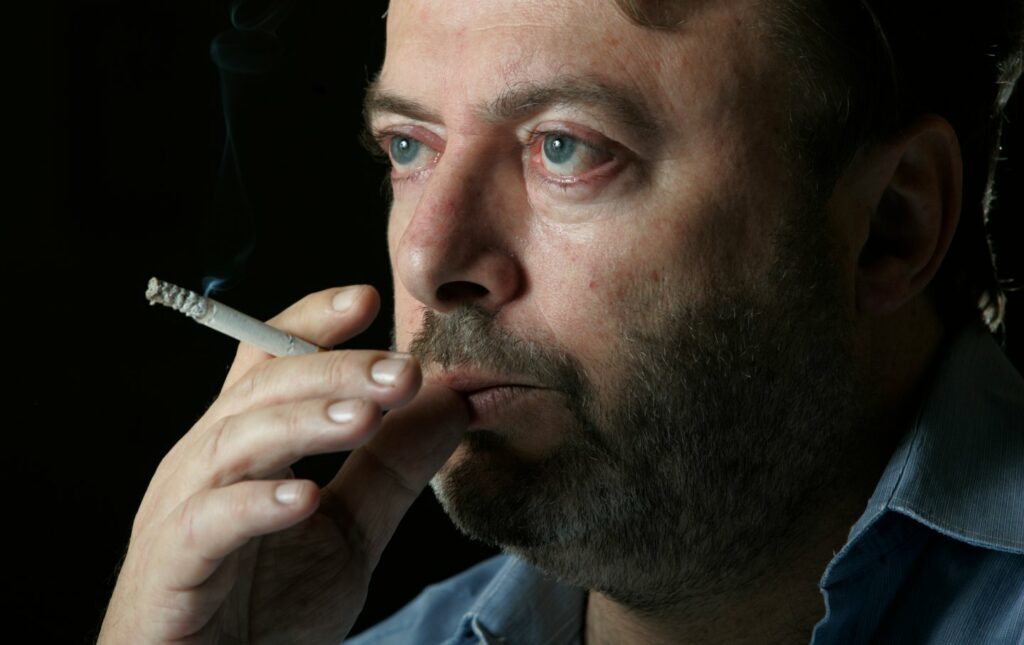Blog Post
Christopher Hitchens and his debates with God
By Jonathon Van Maren
On December 15, 2021, many in the world of punditry marked the ten-year anniversary of the passing of polemicist Christopher Hitchens with columns wondering what could have been. There has been endless speculation over the past decade over what the Hitch might have said about this or that; BBC Radio 4 put out the documentary “Remembering Christopher Hitchens” in 2019; an unauthorized biography that has attracted the ire of Hitchens’ widow will apparently be published this year. Most of the recent tributes to Hitchens were the same tired tropes about what a contrarian he was; only Ross Douthat’s scathing offering avoids hagiography.
Douthat pointed out that Hitchens’ two great causes—the spread of democracy in the Middle East by the American military and the idea that the decline of Christianity would “radically improve late-modern civilization” were, in hindsight: “two of the wrongest ideas of the early-to-mid 2000s. And not all that many people held to both of them at once, which means that Hitchens effectively achieved what you might call the reverse Orwell: Being so boldly independent of ideological faction that you get more important things terribly wrong than the more ordinary sort of scribbler.” The “reverse Orwell”—devastating.
As many have noted, Hitchens’ fame in part stemmed from the fact that his eclectic beliefs gave everyone something to love as well as to hate. He was a staunch man of the Left, but also opposed abortion, noting once that he disagreed with Margaret Thatcher’s vote to legalize it. He defended the pro-life position in debates; he described the violence of abortion in graphic and explicit terms (feticide must always “break some bones and rupture some organs”); one of his former students at Berkeley told me recently that Hitchens “highly approved of my essay comparing abortion and slavery for his class on Orwell and other social journalists.” (Orwell, incidentally, was also strongly anti-abortion.)
Hitchens’ vaunted hatred for Christians was also not quite what it seemed. “You are my enemy,” he once bluntly told a Christian radio host—and when moving in for the rhetorical kill in debates with the faithful, he clearly relished savaging his opponents. At times, his anti-theism—indeed, hatred for God—seemed viscerally genuine. A journalist friend of mine told me that she was introduced to Hitchens at his Washington, D.C. apartment some years ago to discuss religion. She was a recent convert to Catholicism, and a secular friend wanted her to meet him. He downed half a bottle of whisky by early afternoon, and was so belligerent and angry when discussing Christianity that she quickly became uncomfortable and wanted to leave.
But Hitchens also counted many Christians among his close friends. The Christian author Larry Taunton’s 2016 memoir of his friendship with Hitchens, which he told me was a “spiritual biography,” attracted outrage from many Hitchens sycophants before they even made it past the title: The Faith of Christopher Hitchens: The Restless Soul of the World’s Most Famous Atheist. The founder of a Christian apologetics organization specializing in debate, Taunton not only debated Hitchens, but actually took several road trips with him—and these experiences make up the body of his fascinating account. They also contradict Hitchens’ public declarations of contempt for all Christians.
But it was precisely these declarations of hatred for the faithful that won Hitchens so many devoted disciples, and it is because Taunton’s short tome proves that Hitchens was “keeping two sets of books” on that score that it triggered such vitriol from the atheist community. “Christopher and I immediately got on with one another, we liked each other,” Taunton told me. That despite the fact that Taunton is an evangelical from the deep South, and Hitchens was a famously crude hedonist who lived the raconteur writer’s lifestyle to the hilt. He drank hard—the teetotalling Taunton recalls having to help Hitchens to bed after the consumption of an enormous amount of whisky and notes that the tales of Hitchens being impervious to the effects of liquor were obviously false. And yet it was Hitchens who suggested that he and Taunton travel together—and even told a TV interviewer that “If everyone in the United States had the same qualities of loyalty and care and concern for others that Larry Taunton had, we’d be living in a much better society than we do.”
Taunton’s title proved to be waving a red cape in front of the atheist bull, despite the fact that he never once claims Hitchens had a deathbed conversion—Hitchens’ wife Carol Blue said the subject of God never came up during his last days, and so we must leave it at that. Even so, Taunton does say that Hitchens used his debating tours after the release of his screed god is Not Great to engage with Christians in a manner that began to make his anti-theist friends very nervous indeed.
After Christopher’s cancer diagnosis, when the question of God’s existence suddenly became more pressing, discussions with his Christian friends took a more serious and urgent tone. As they studied the Bible together one afternoon driving through the Shenandoah, Taunton relates, Hitchens suddenly stopped reading and began quoting John 11: 25-26 from memory:
“It’s a great verse,” I add, sensing we have reached a defining moment.
“Yes, Dickens thought so,” [Hitchens] says, and then, taking his reading glasses off, he turns to me and asks: “Do you ‘believest thou this,’ Larry Taunton?” His sarcasm is evident, but it lacks its customary force.
“I do. But you already knew that I did. The question is, ‘Do you believest thou this,’ Christopher Hitchens?”
As if searching for a clever riposte, he hesitates and speaks with unexpected transparency: “I’ll admit that it is not without appeal to a dying man.”
READ THE REST OF THIS COLUMN AT THE EUROPEAN CONSERVATIVE








